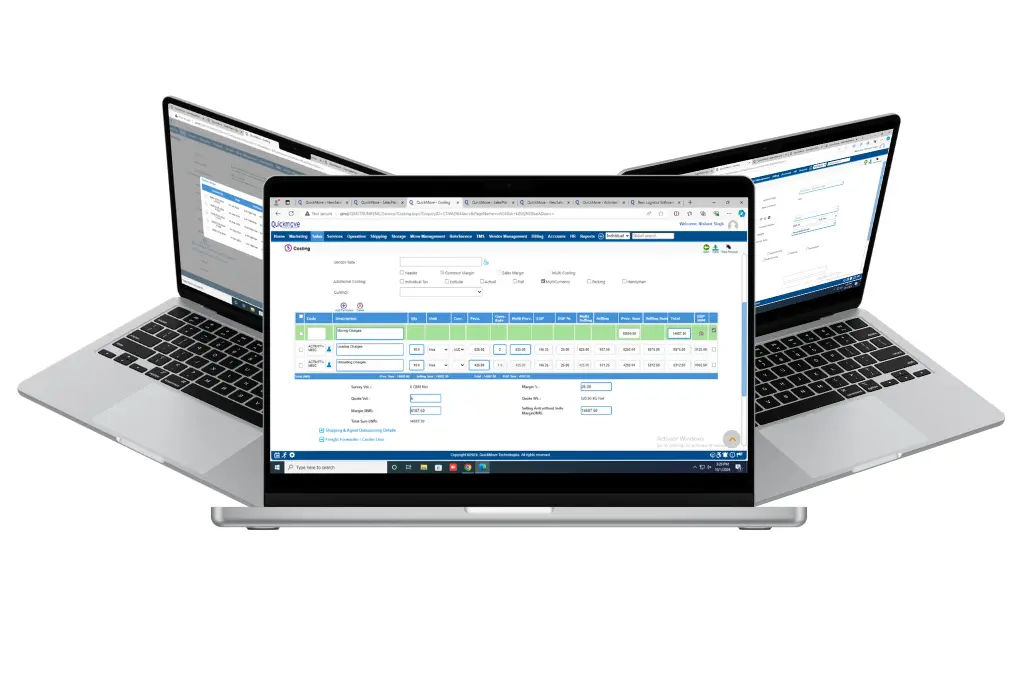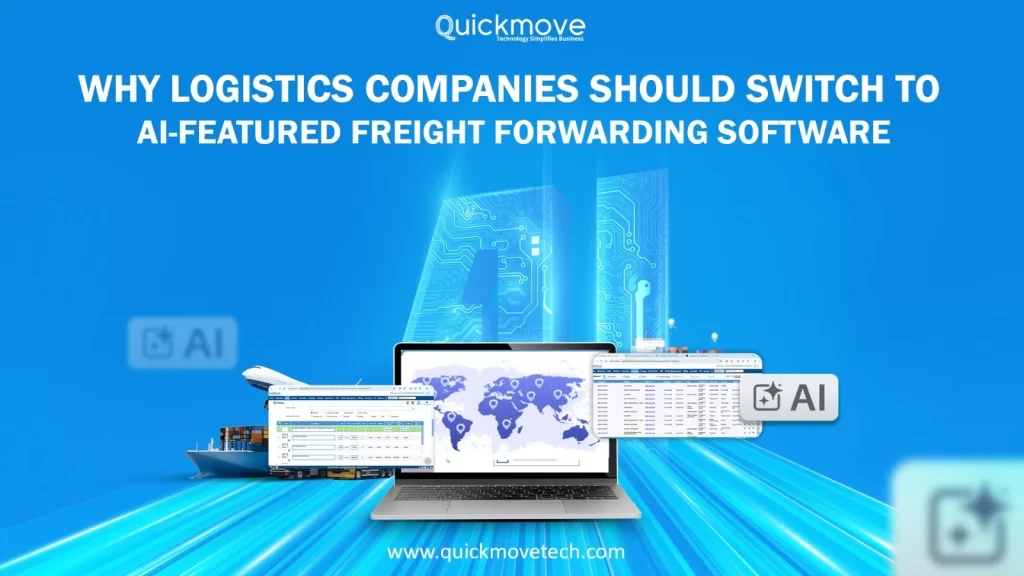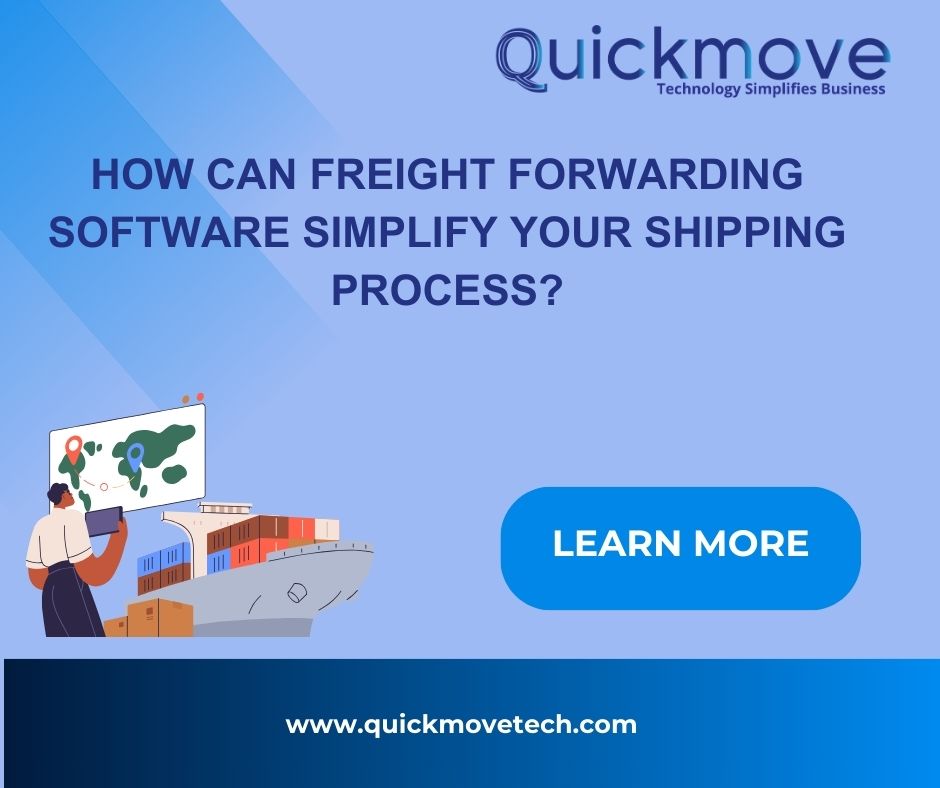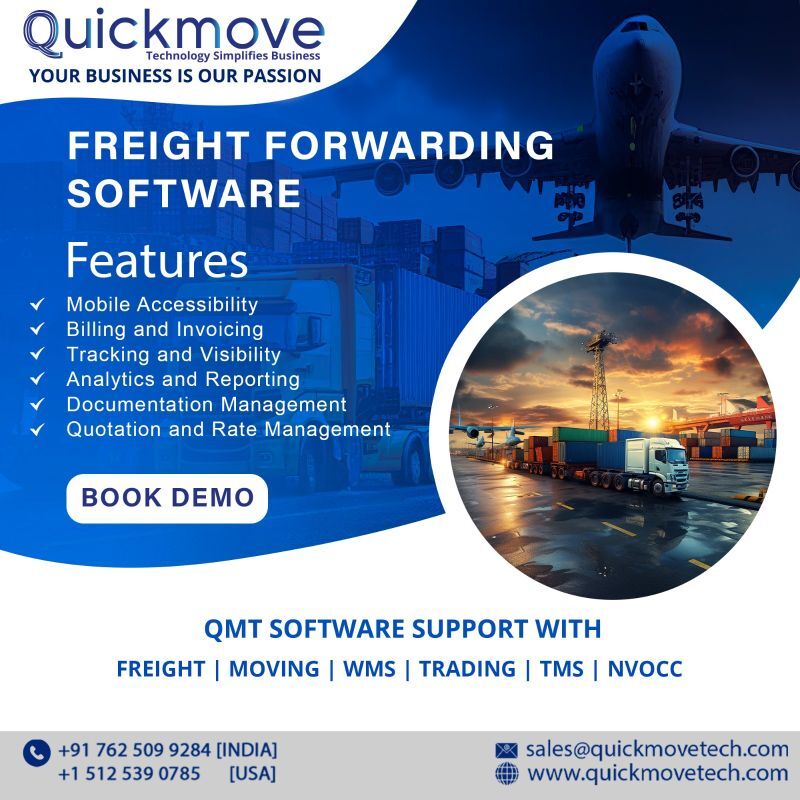The international logistics sector is in the midst of a fast-paced digital revolution, fueled by the demand for efficiency, agility, and cost savings. At the forefront of this revolution is AI-featured freight forwarding software—a strong solution that marries automation, predictive intelligence, and real-time data processing to drive supply chain optimization.
For every one of the logistics firms that still depend on legacy systems or legacy processes, switching to AI-based solutions is no longer a choice but a matter of strategic imperative.
1. Improved Operational Efficiency
Freight forwarding software with AI automation automates tasks like shipping tracking, route optimization, customs documentation, invoicing, and carrier management. The software is able to learn by experience through machine learning algorithms to enhance the everyday performance of tasks, saving logistics businesses several hours of work on a daily basis.
For instance, AI-driven solutions automatically flag customs document mistakes or more optimally distribute containers through experience-based understanding of shipping patterns. That equates to reduced time lost, reduced money in fines paid out, and faster deliveries.
2. Smart Decision-Making Using Predictive Analytics
There are no predictive aspects to classic freight forwarding. Predictive analytics are used, though, by AI-based systems, which recognize the likelihood of impending interruptions such as port congestions, bad weather, or jamming at bottlenecks of a supply chain.
Using real-time data from IoT devices, GPS tracking, and international shipping databases, contemporary freight forwarding software predicts ETAs, detects potential delays, and recommends alternate routes or carriers. This enables logistics managers to make proactive rather than reactive choices.
3. Reducing Costs across the Supply Chain
AI can uncover inefficiencies that are not apparent and cost unnecessary operational cost. Unused capacity in the cargo, excessive fuel consumption, or suboptimal delivery routes are just a few. AI technology identifies these inefficiencies in real-time and suggests improvements. Also, automation eliminates human error—a common cause of financial loss for logistics firms. Fewer errors translate to fewer fines, less rework, and lower overhead.
4. Seamless Customer Experience
Customers desire visibility, speed, and transparency in shipping. Freight forwarder powered by AI give this in the form of real-time tracking information, automated customer support chat bots, and intelligent communication tools.
Shippers receive instant answers to questions, GPS-based shipment tracking, and notifications at each stage.This are not only trust creation but business creation in the form of repeat business.
Dubai is also a global logistics hub connecting East and West through advanced airports and ports. Digitalization has been at the core of the UAE government’s strategic visions, like Dubai Vision 2030 and Dubai Logistics Strategy 2030, which have fostered innovation among logistics providers by embracing new technologies like AI, blockchain, and IoT.
Here’s how logistics businesses in Dubai are making use of AI-capable freight forwarding software:
1. Smart Port Management
Jebel Ali Port, which is among the busiest ports in the world, utilizes AI-enabled platforms for berthing planning, cargo tracking, and resource allocation management. This has cut ship turnaround times in half and maximized port productivity.
2. Artificial Intelligence in Routing Trade Optimization
From its geopolitical position, Dubai logistics companies make use of AI codes to compute the shortest and cheapest routes of trade. Such websites examine traffic patterns, meteorological conditions, and geopolitics for the purposes of making decisions concerning optimum routes for shipping.
3. Regulation and Custom Integration
Dubai Customs makes use of AI technology to auto-audit foreign imports and assess risk. Custom freight forwarding computer software causes rapid clearance and prevents delay because of manual check or paperwork failure.
4. Data-Driven Supply Chain Strategies
Market leaders within Dubai logistics industry are utilizing analysis of data in order to predict demand, stock, and activity in the warehouses. AI-driven freight forwarding represents the very nucleus of the transition since it facilitates businesses being versatile and alert towards changing market needs.
Conclusion
Shifting to AI-enabled freight forwarding software is a disruptor for logistics businesses aiming to remain competitive within a high-speed, technologically advanced world. From cost savings to better decision-making and customer satisfaction, the rewards are enormous. As observed in Dubai, AI technologies’ early adoption is already yielding quantifiable dividends—quicker port operations, more intelligent route planning, and closer alignment with regulation systems. By adopting this technology, logistics companies globally can streamline their operations, grow efficiently, and satisfy the increasing needs of the international marketplace.




